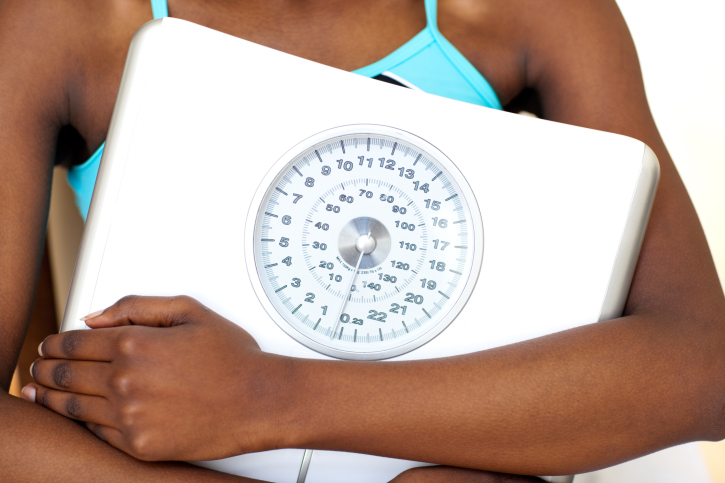
Thanks to celebritiesrecently, Zoe Kravtiz coming clean about their past struggles with body image issues and eating disorders, other African Americans are slowly but surely becoming comfortable with having these sort of conversations, which can be a difficult thing to do, especially within the Black community.
There aren't exact statistics available on the prevalence of eating disorders in women of color, specifically Black women and according to the National Eating Disorders Association (NEDA), this is "due to our historically biased view that eating disorders only affect White women, relatively little research has been conducted utilizing participants from racial and ethnic minority groups.”
Despite popular belief, White women and girls aren’t the only ones who can suffer from eating disorders, which include binge eating.
One thing’s for sure: Eating disorders do not discriminate against race, age, class or gender, but how can you tell if someone you love is secretly struggling with one? Here are three common signs.
Warning Sign #1: Fixation with food and dieting
As humans, we can be our own worst enemies sometimes, but if someone you know is constantly making comments about being “fat,” despite being underweight or normal weight, you may want to think twice before laughing and shrugging it off next time. In addition, a constant obsession with counting calories and keeping track of the fat content in foods are other tell-tale signs.
MUST READ: Zoe Kravitz On Her Eating Disorder: "I Had A Hard Time Loving Myself"
Warning Sign #2: Developing ritualistic eating patterns
Cutting up food into tiny pieces, not wanting to eat in front of others, making excuses not to eat, hiding food, and going to the restroom almost immediately after every meal are all signs that someone may be secretly struggling with an eating disorder.
Warning Sign #3: Change in clothing and other behavior
Wearing baggy clothes can be a way for some people with eating disorders to disguise their dramatic changes in weight. Also, if you’re noticing that the person seems more lethargic, anti-social and withdrawn than usual, it may finally be time to say something. When confronting someone with an eating disorder, never do so in a way that’s accusatory, but caring and nonjudgmental instead.
If you or someone know is suffering from an eating disorder, don’t be afraid to speak up! Call the National Association of Anorexia Nervosa and Associated Disorders’ helpline at 630-577-1330.
For more informative articles, click here!









